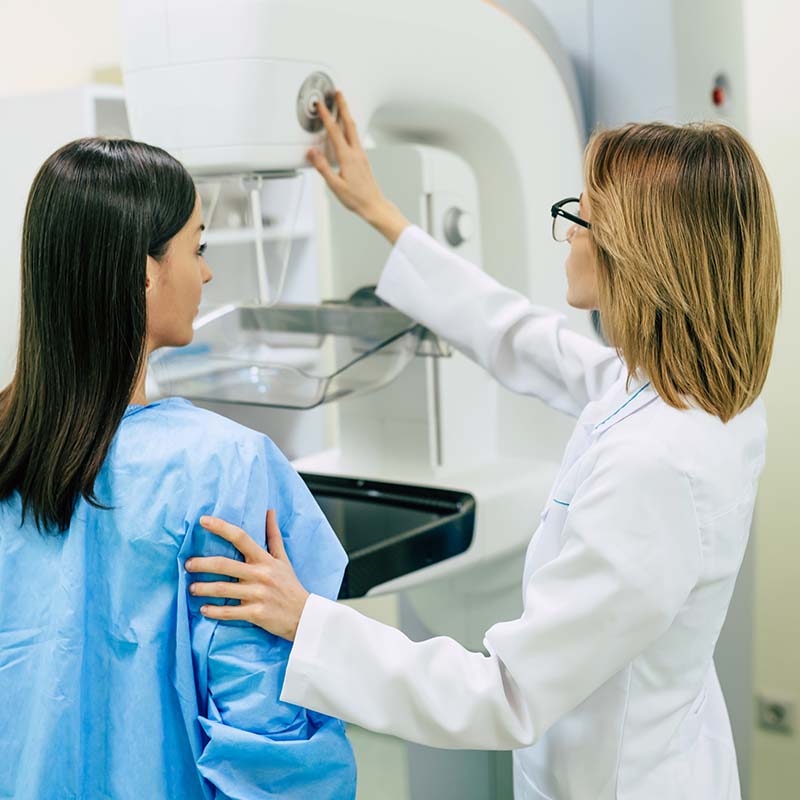Endometriosis Treatment
in Birmingham, AL
If you experience pelvic pain—especially during your menstrual period—or have noticed heavy or irregular periods, these symptoms, along with several others, may be signs of endometriosis
.
Endometriosis is a condition in which tissue similar to the lining of the uterus (endometrium) grows outside the uterus. This misplaced tissue responds to hormonal changes during the menstrual cycle, leading to pain, inflammation, and other issues.
If you suspect you may have endometriosis, seeking a qualified OBGYN can provide valuable diagnosis and treatment options. At OB/GYN Associates of Alabama, we’ve dedicated ourselves to women’s health and can help you manage endometriosis. Contact us today to schedule an appointment and discuss your concerns.

What Is Endometriosis?
Endometriosis occurs when endometrial tissue, normally found inside the uterus, starts to grow outside the uterus. Common locations include the ovaries, fallopian tubes, the tissue lining in the pelvis (peritoneum), and the bowels or bladder.
This misplaced tissue behaves similarly to the endometrium inside the uterus. It thickens and breaks down monthly during your menstrual cycle, but unlike its usual location, it has no way to leave the body.
Endometriosis Symptoms
- Pelvic pain, especially during your period (pain may worsen over time)
- Pain during intercourse
- Pain during bowel movements or urination
- Heavy or irregular periods
- Bleeding between periods
- Difficulty getting pregnant (infertility)
- Fatigue
- Other symptoms like bloating, diarrhea, constipation, nausea, and vomiting are less common but can occur
It’s important to note that the impact of endometriosis can vary greatly from woman to woman. Some women may experience mild symptoms, while others may face more severe challenges.
What Causes Endometriosis?
While the exact cause remains unknown, several theories exist. These include retrograde menstruation, in which endometrial tissue flows backward through the fallopian tubes, and embryonic cell rest, in which misplaced cells develop into endometrial tissue.
Is it time to seek relief? Contact OB/GYN Associates of Alabama today to schedule a consultation. Our endometriosis specialists work with you to understand your symptoms and develop a treatment plan that works best for you.
Getting an Endometriosis Diagnosis
There’s no single definitive test for endometriosis; however, we carefully consider your medical history, symptoms, and physical exam findings. To gain a clearer picture, we may use imaging techniques like:
- Ultrasound: This non-invasive test can sometimes detect endometrial implants.
- MRI: For more detailed information, an MRI can provide a comprehensive view of your pelvic area.
In some cases, laparoscopic surgery for endometriosis may be necessary. This minimally invasive procedure involves inserting a small camera through your abdomen to directly visualize the endometrial tissue and assess its extent.
Endometriosis Treatment Options with OBGYN
Resources for Managing UI
Because there is no cure, endometriosis can only be managed. OB/GYN Associates can help you manage your symptoms and improve your quality of life. Treatment options can vary depending on the severity of your condition and your individual needs.
Here are some common approaches:
- Pain Management: Over-the-counter or prescription pain medications can help alleviate discomfort and provide endometriosis pain relief.
- Hormonal Therapy for Endometriosis: Birth control pills, hormonal IUDs, or other medications can help regulate your menstrual cycle and reduce symptoms.
- Endometriosis Surgery: In some cases, laparoscopic surgery may be recommended to remove endometrial implants and address any associated issues.
Remember, you’re not alone. Our team provides support, guidance, and effective treatment options for endometriosis. Contact our OBGYN endometriosis specialists today to schedule an appointment.
Endometriosis FAQs
Yes, endometriosis can interfere with fertility. The presence of endometrial tissue outside the uterus can cause inflammation, scarring, and blockages in the reproductive organs, making it difficult for sperm to reach an egg or for a fertilized egg to implant in the uterus.
There are several treatment options available for endometriosis-related infertility. These may include:
- Hormonal therapy: Medications can help regulate your menstrual cycle and reduce inflammation.
- Surgery: Laparoscopic surgery can remove endometrial implants and address any blockages.
- Assisted reproductive technologies (ART): Techniques like in vitro fertilization (IVF) can help overcome fertility challenges.
Laparoscopic surgery is a minimally invasive procedure that involves making small incisions in your abdomen. A thin, lighted tube with a camera is inserted to visualize the pelvic area. The surgeon can then remove endometrial implants and address any adhesions or other abnormalities.
Recovery time varies from person to person, but most women can resume normal activities within a few weeks. It’s important to follow your doctor’s instructions and avoid strenuous activity during the initial healing period.
Fertility preservation can provide peace of mind and give you the option to have children in the future, even if endometriosis affects your fertility. It’s a valuable tool for women who want to delay pregnancy or have concerns about their reproductive health.
Contact Us Today!
Contact Us To Schedule Your Free Consultation
Schedule an Appointment Today
OBGYN Associates of Alabama is committed to helping women like you find relief from endometriosis and improve your quality of life. Our team offers personalized care, accurate diagnosis, and effective treatment options. Schedule a consultation in Birmingham, AL, today.




